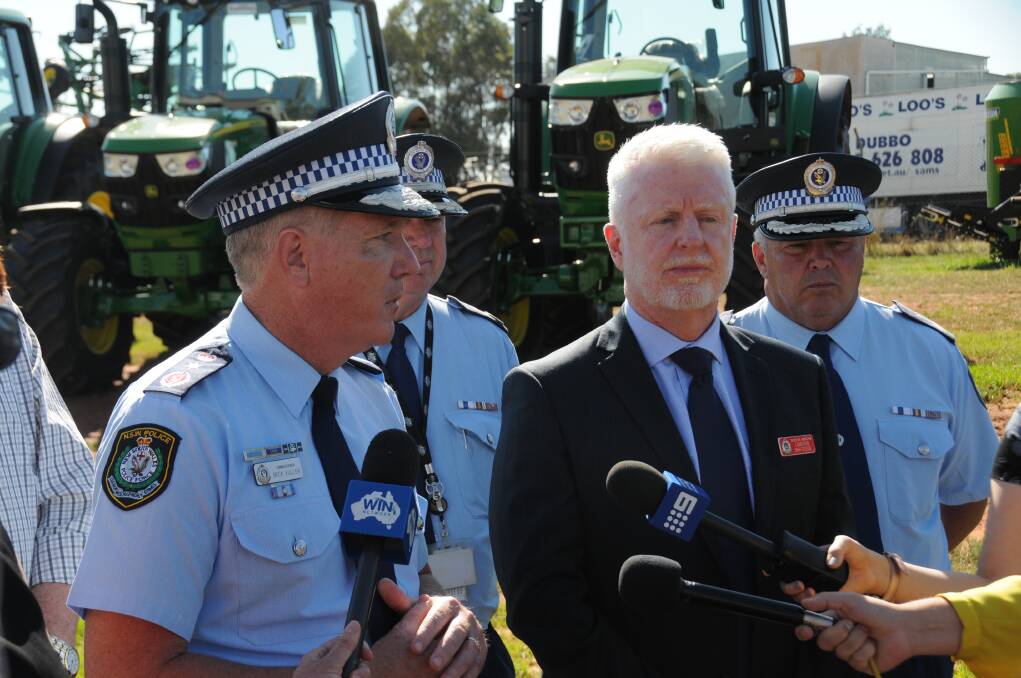
The man in charge of trying to reduce the rate of illegal hunting and firearm and stock thefts across NSW said highly trained police officers and access to resources will drive offences down.
Subscribe now for unlimited access.
$0/
(min cost $0)
or signup to continue reading
Detective Inspector Cameron Whiteside was named as the co-ordinator of the new Rural Crime Prevention Teams that were announced by NSW Police Commissioner Mick Fuller on Tuesday.
Inspector Whiteside, formerly a crime manager for the Mudgee Local Area Command, will be based out of the Orana Mid-Western Police district.
Detective Sergeants based across northern, central and southern NSW will report to Inspector Whiteside, with the full squad of 42 officers spread across the state.
The changes are designed to have investigators report to a central point allowing, which police headquarters have said will allow for greater flexibility and service to rural crime across country NSW.
“Currently there are 34 investigators around the state. They will be supported by a number of Sergeants in key locations and over time they will be supported by intelligence analysts,” Detective Inspector Whiteside said.
“The idea of that is to have wide coverage but the ability to come together at any given time and enforce. We want to make inroads not only into the prevention of crime but also target criminals.
“I’ll be co-ordinating this. It will be intelligence driven and we will be targeting those offenders.”
Inspector Whiteside conceded there had been issues with getting good outcomes when landholders had reported crimes but said the focus now was on getting results.
“We haven’t always got it right but that’s what this is about, putting resources in the right place,” he said.
There were a number of downfalls in the past and I acknowledge that but ... I’m sure we can get the results.
- Inspector Cameron Whiteside
“As identified in the Bradshaw review, there were a number of downfalls in the past and I acknowledge that but moving forward, if we can increase the reporting of the crime, I’m sure we can get the results.
We have increased numbers already and these are specialist investigators. They are skilled not only as detectives but criminal investigators. A lot of them have backgrounds in rural industry and come from rural industry.
Part of the challenge was now getting farmers and landholders to properly report all crime so that investigators could follow it all up, Inspector Whiteside said.
“I’d like to urge the rural community to follow us with this and increase reporting. If we don’t know it’s happening, we can’t do much about it,” he said.
“If there is illegal hunting, stock or machinery theft, or oysters being taken, we want to hear about it and we want to be in a position, along with our partners at the DPI, RSPCA, NSW Farmers, and the like to do something about this.”

